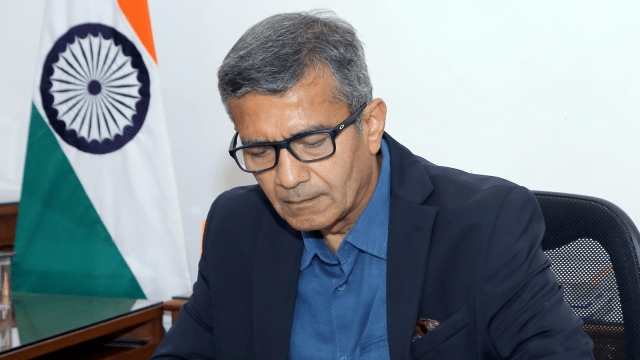Click here to join Express Pune WhatsApp channel and get a curated list of our stories
Amidst trends of competitive populism, India needs to back soft power with hard power: Defence Secretary
Defence Secretary Rajesh Kumar Singh also said that technological superiority and industrial strength often determine outcomes in warfare in today's world.
 Defence Secretary Rajesh Kumar Singh
Defence Secretary Rajesh Kumar SinghDefence Secretary Rajesh Kumar Singh said Friday that, amidst competitive populism and economic protectionism around the world, India’s need to back its soft power with hard power “is becoming more and more critical”.
Singh was speaking at the Defence Technology Seminar titled STRIDE (Synergy of Technology, Research, Industry and Defence Ecosystem) organised by Pune-headquartered Southern Command of the Indian Army.
“Let me start by also talking a little bit about our geopolitical scenario as it exists in the world today. As you know, the trend of increasing globalisation and free trade is now a thing of the past, brought to a halt by geopolitical factors linked to two conflicts ongoing in the Middle East and Europe, and the rise of populist leadership patterns across the globe,” Singh said in his speech.
“These trends are causing competitive populism and economic protectionism around the world, accompanied by economic fragmentation, the decline of multilateral institutions and a growing tide of nationalism. As a result, the need to back our soft power with hard power is becoming more and more critical at a time when strategic deal-making requires you to be able to project hard power as well,” he said.
“That is why countries like the countries of the European Union, 27 of them, suddenly faced with the potential withdrawal of the US umbrella, are suddenly rearming themselves and making commitments to spend as much as 5 per cent of their GDP on defence.”
The defence secretary said technological superiority and industrial strength often determine outcomes in warfare in today’s world. “And that is why, as we aspire to be Viksit Bharat and becoming a $30 trillion economy from a $4 trillion economy by 2047, we will have to ensure that our defence industry grows a pace along with the rest of our manufacturing sector,” he said.
“Because this transition is critical to the broader issue of becoming a Viksit nation of innovation, of enhancing India’s startup culture, of widening our industrial base, of increasing the share of manufacturing in our GDP, and also of generating employment and the spin-off benefits that come from the dual use of technology.”
Click here to join Express Pune WhatsApp channel and get a curated list of our stories








